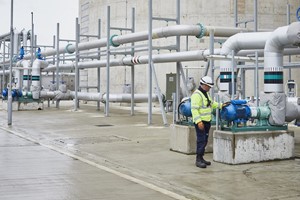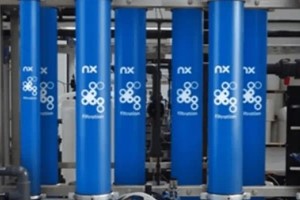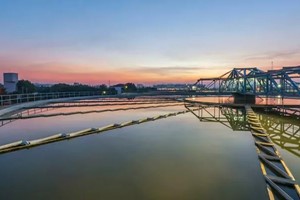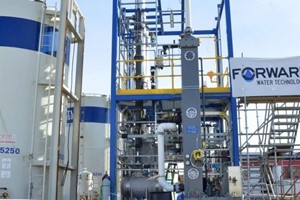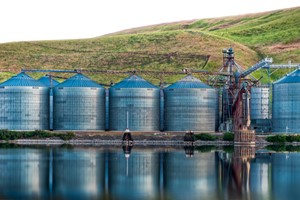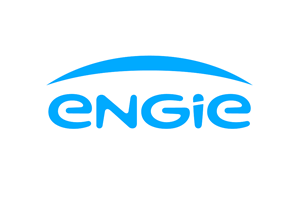A consortium led by Yorkshire Water has been granted £2.3 million from the Ofwat Innovation Fund (OIF) for its Advanced Thermal Conversion (ATC) Gasification technology. This project aims to convert sewage sludge into usable products such as biochar, vitrified ash 'stones,' and a hydrogen-rich synthesis gas (syngas). The consortium includes Enertecgreen (ETG), Queen’s University Belfast, Carbon Trust, Thames Water, United Utilities, Anglian Water, Scottish Water, Irish Water, Northern Ireland Water, Southern Water, and Wessex Water.
The ATC Gasification process operates at high temperatures to convert sewage sludge while destroying contaminants such as PFAS and microplastics. The resulting biochar could be used as wastewater treatment media or as an additive in brick manufacturing.
It also serves as a soil improver to enhance water and nutrient retention and sequester carbon in soil. The vitrified ash 'stones' can be utilized as aggregate in the construction industry, reducing the embodied carbon footprint. The syngas produced can generate green electricity and create high-value products like aviation fuel.
Dr. Danielle Hankin, innovation programme manager at Yorkshire Water, highlighted the project's significance: "Converting sewage sludge into gas, biochar and ash ‘stones’ opens up new, more sustainable uses for this waste product. We’re proud to be pre-empting changes in legislation and consumer attitudes, by delivering a groundbreaking technology that benefits customers, the environment and future-proofs the water industry. Once proven, the Gasification process will produce sustainable wastewater treatment media and construction material, generate green electricity, and could create high-value products such as biomethanol, aviation fuel or hydrogen. Our work represents a pivotal step in driving the UK towards a greener, more resource-efficient future."
The Water Breakthrough Challenge, part of a series of competitions by Ofwat and run by Challenge Works with Arup and Isle Utilities, aims to drive innovation and collaboration in the water sector. Helen Campbell, senior director at Ofwat, stated, “There are big challenges in the water industry that must be solved, some are well known and others are less so. In our fourth Water Breakthrough Challenge we called for solutions with potential to deliver wide-scale, transformational change for customers, society and the environment – and that’s exactly what today’s winners have done.”
The UK produces approximately 1.4 million tonnes of dry solid sewage sludge annually, with 87% currently anaerobically digested and used on land. This method faces significant pressure, making landfill or incineration unsustainable alternatives.
Yorkshire Water has been exploring alternatives for over 12 years, beginning with a pyrolysis process trial at Esholt and culminating in the development of a small-commercial scale ATC Gasification facility at Lower Brighouse, Huddersfield, in partnership with ETG.
The ATC Gasification concept was designed to address legislative changes on sewage sludge disposal, reduce greenhouse gas emissions, and provide an option for energy self-sufficiency. The project will dry and gasify batches of 100% sewage sludge over 20 weeks, proving the technical and commercial viability of gasification as a sustainable sludge conversion process.
Initial lab-scale research at Queen’s University Belfast has demonstrated that Gasification-derived biochar could be used as a wastewater treatment media to remove phosphorus, offering a sustainable alternative to ferric dosing.
Enertecgreen is in discussions with the UK's largest brick manufacturer regarding the use of biochar and vitrified ash stones in construction. The hydrogen-rich syngas could generate heat and power, be fed into the national grid, or be converted into high-value products like biomethanol, aviation fuel, or hydrogen.
Yorkshire Water produces around 160,000 dry tons of sludge annually. A power-optimized Gasification plant could generate approximately 50MWee of power, making the process energy self-sufficient and contributing to Yorkshire Water's Net Zero ambitions. The UK’s total sludge production of 1.2 million dry tons could be converted into sustainable products, removing all sludge to land and generating 375 MW of renewable energy.
The project not only addresses regulatory risks but also presents sustainable commercial reuse options, converting 80% of the energy in the sludge to usable energy.
For every 10 tonnes of dry sludge, 8MW of usable energy is produced, with surplus energy potentially meeting external demands. The destruction of all contaminants, including microplastics and PFAS, ensures no solid residues return to land.




